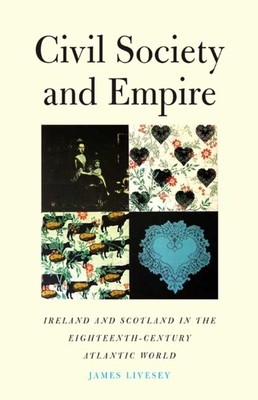
- We will send in 10–14 business days.
- Author: James Gerard Livesey
- Publisher: Yale University Press
- ISBN-10: 0300139020
- ISBN-13: 9780300139020
- Format: 15.8 x 23.9 x 2.5 cm, hardcover
- Language: English
- SAVE -10% with code: EXTRA
Reviews
Description
James Livesey traces the origins of the modern conception of civil society--an ideal of collective life between the family and politics--not to England or France, as many of his predecessors have done, but to the provincial societies of Ireland and Scotland in the eighteenth century. Livesey shows how civil society was first invented as an idea of renewed community for the provincial and defeated elites in the provinces of the British Empire and how this innovation allowed them to enjoy liberty without directly participating in the empire's governance, until the limits of the concept were revealed.
The concept of civil society continues to have direct relevance for contemporary political theory and action. Livesey demonstrates how western governments, for example, have appealed to the values of civil society in their projections of power in Bosnia and Iraq. Civil society has become an object central to current ideological debate, and this book offers a thought-provoking discussion of its beginnings, objectives, and current nature.
EXTRA 10 % discount with code: EXTRA
The promotion ends in 11d.02:11:37
The discount code is valid when purchasing from 10 €. Discounts do not stack.
- Author: James Gerard Livesey
- Publisher: Yale University Press
- ISBN-10: 0300139020
- ISBN-13: 9780300139020
- Format: 15.8 x 23.9 x 2.5 cm, hardcover
- Language: English English
James Livesey traces the origins of the modern conception of civil society--an ideal of collective life between the family and politics--not to England or France, as many of his predecessors have done, but to the provincial societies of Ireland and Scotland in the eighteenth century. Livesey shows how civil society was first invented as an idea of renewed community for the provincial and defeated elites in the provinces of the British Empire and how this innovation allowed them to enjoy liberty without directly participating in the empire's governance, until the limits of the concept were revealed.
The concept of civil society continues to have direct relevance for contemporary political theory and action. Livesey demonstrates how western governments, for example, have appealed to the values of civil society in their projections of power in Bosnia and Iraq. Civil society has become an object central to current ideological debate, and this book offers a thought-provoking discussion of its beginnings, objectives, and current nature.


Reviews